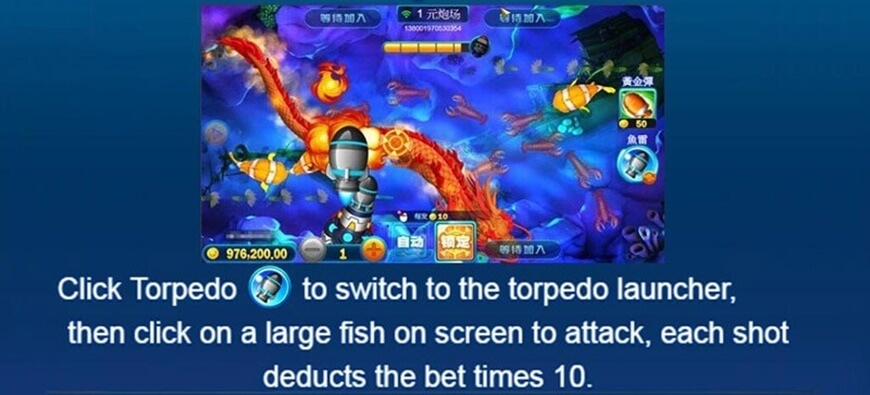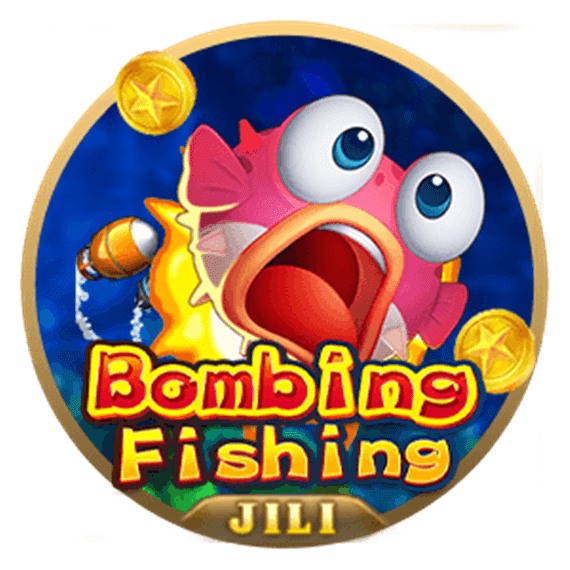The Devastating Impact of Bombing Fishing in 55club
Fishing is an integral part of the livelihoods and food security of many coastal communities around the world. However, the practice of bombing fishing, also known as dynamite fishing or blast fishing, has emerged as a significant threat to marine ecosystems and the communities that depend on them. This destructive fishing method, which involves the use of explosives to stun or kill fish, has a devastating impact on coral reefs, fish populations, and the overall health of the marine environment.
In this comprehensive blog post, we will explore the various disadvantages of bombing fishing, particularly in the context of the 55club, a community of concerned individuals and organizations dedicated to combating this harmful practice. We will delve into the long-term consequences of bombing fishing on marine ecosystems, the hidden dangers of the techniques used, the economic impacts on local communities, and the urgent need for international collaboration to address this critical issue.
Menu
- Beyond the Catch: The Long-Term Consequences of Bombing Fishing on Coral Reefs
- See more: 55clubA Silent Killer: The Hidden Dangers of Cyanide and Explosives Used in Bombing Fishing
- The Economics of Destruction: The Cost of Bombing Fishing to Local Communities and Fisheries
- Beyond the Fish: The Threat of Bombing Fishing to Coastal Tourism and Recreation
- A Call to Action: The Urgent Need for International Collaboration to Combat Bombing Fishing
- The Role of Technology in Monitoring and Combating Bombing Fishing Practices
- Sustainable Alternatives: Empowering Fishing Communities with Eco-Friendly Practices
- The 55 Club: A Catalyst for Change in the Fight Against Bombing Fishing
- From Destruction to Conservation: Building a Future where Fish and Communities Thrive
- Conclusion
Beyond the Catch: The Long-Term Consequences of Bombing Fishing on Coral Reefs

The Fragility of Coral Reefs
Coral reefs are incredibly fragile and sensitive ecosystems that play a vital role in the overall health of the marine environment. These underwater oases of life are home to a diverse array of marine species, providing essential habitat, breeding grounds, and food sources for countless organisms. However, the use of explosives in bombing fishing can have catastrophic effects on coral reef communities.
The Devastating Impact of Explosives on Coral Reefs
When explosives are detonated underwater, the shockwaves and physical damage can destroy large swaths of coral reefs, shattering the delicate structures and causing widespread mortality among the resident marine life. The blast can also stir up sediment, smothering and suffocating the remaining coral polyps, further exacerbating the damage.
The Long-Term Consequences of Coral Reef Degradation
The loss of coral reefs due to bombing fishing has far-reaching consequences that can take decades or even centuries to recover. Without the structural integrity and biodiversity of healthy coral reef systems, the entire marine ecosystem can become unbalanced, leading to a decline in fish populations, the disruption of essential food webs, and the potential loss of valuable ecosystem services, such as coastal protection and tourism.
The Importance of Coral Reef Conservation
Recognizing the critical role that coral reefs play in supporting marine life and coastal communities, the 55club has made it a priority to raise awareness and advocate for the protection of these fragile ecosystems. By working to eliminate the use of explosives in fishing and promoting sustainable fishing practices, the 55club aims to safeguard the long-term health and resilience of coral reefs around the world.

The Use of Cyanide in Fishing
In addition to the physical damage caused by explosives, some fishing practices also involve the use of cyanide, a highly toxic substance that can have devastating effects on marine life and human health. Cyanide is often used to stun fish, making them easier to capture, but the chemical can linger in the environment, contaminating the food chain and posing a threat to both marine and human populations.
The Dangers of Explosive Fishing
Explosives used in bombing fishing, such as dynamite or homemade bombs, can also have far-reaching consequences beyond the immediate impact on the target fish population. These explosives can release toxic chemicals, heavy metals, and other pollutants into the water, further compromising the health of the marine ecosystem.
The Risks to Human Health and Safety
The use of explosives and toxic substances in fishing not only threatens the environment but also poses a significant risk to the safety and well-being of the fishing communities themselves. Improper handling, storage, or use of these materials can lead to accidental detonations, injuries, and even fatalities, jeopardizing the livelihoods and security of the very people who rely on the sea for their survival.
The Need for Comprehensive Regulation and Enforcement
Recognizing the hidden dangers of cyanide and explosives in fishing, the 55club has been at the forefront of advocating for strict regulations and robust enforcement mechanisms to curb these destructive practices. By working with policymakers, law enforcement agencies, and local communities, the 55club aims to promote safer and more sustainable fishing methods that protect both the environment and the well-being of those who depend on it.
The Economics of Destruction: The Cost of Bombing Fishing to Local Communities and Fisheries

The Short-Term Gains and Long-Term Losses
While bombing fishing may provide some immediate financial benefits through the rapid capture of large quantities of fish, the long-term consequences of this practice can be devastating to local communities and fisheries. The destruction of coral reefs and the depletion of fish stocks can lead to a significant decline in the availability of marine resources, jeopardizing the food security and economic stability of coastal communities.
The Impact on Sustainable Fishing Livelihoods
Sustainable fishing practices, such as line fishing, net fishing, or the use of traps, are often disrupted or displaced by the widespread use of bombing fishing. This can lead to a decline in the viability of traditional fishing livelihoods, forcing communities to seek alternative means of income, which may not provide the same level of stability or cultural significance.
The Economic Consequences of Ecosystem Degradation
The degradation of marine ecosystems caused by bombing fishing can have far-reaching economic consequences, impacting not only local fisheries but also the broader tourism and recreation industries. The loss of healthy coral reefs and diverse marine life can reduce the attractiveness of coastal destinations, leading to a decline in visitor numbers and revenue for local businesses.
The Need for Economic Diversification and Sustainable Development
To mitigate the economic impacts of bombing fishing, the 55club has been advocating for the development of alternative livelihoods and economic opportunities that are aligned with sustainable practices. By working with local communities, policymakers, and the private sector, the 55club aims to promote the diversification of coastal economies, supporting the transition to more sustainable and resilient development models.
Beyond the Fish: The Threat of Bombing Fishing to Coastal Tourism and Recreation
The Importance of Healthy Marine Ecosystems for Tourism
Coastal tourism and recreation play a vital role in the economies of many island nations and coastal communities around the world. Healthy and vibrant marine ecosystems, particularly coral reefs, are a major draw for tourists, who are attracted to the stunning underwater landscapes and the opportunity to engage in activities such as snorkeling, diving, and beach-based recreation.
The Decline of Coastal Tourism due to Bombing Fishing
The destruction of coral reefs and the depletion of marine life caused by bombing fishing can have a detrimental impact on the tourism industry. As the natural beauty and diversity of the marine environment deteriorate, the appeal of coastal destinations may diminish, leading to a decline in visitor numbers and a corresponding drop in revenue for local businesses.
The Broader Economic Implications of Tourism Decline
The decline of coastal tourism due to the impacts of bombing fishing can have far-reaching economic consequences for local communities. The loss of tourism-related income can lead to job losses, reduced tax revenues, and a general economic downturn, further exacerbating the financial challenges faced by coastal communities that depend on the sea for their livelihoods.
The Importance of Sustainable Tourism Development
To address the threat of bombing fishing to coastal tourism and recreation, the 55club has been advocating for the development of sustainable tourism models that prioritize the preservation of marine ecosystems. By working with local stakeholders, policymakers, and the tourism industry, the 55club aims to promote ecotourism, responsible travel practices, and the incorporation of conservation initiatives into tourism development plans.
A Call to Action: The Urgent Need for International Collaboration to Combat Bombing Fishing
The Global Scale of the Bombing Fishing Problem
Bombing fishing is a global issue that transcends national boundaries, with reports of this destructive practice occurring in various regions around the world, including Southeast Asia, the Pacific, and parts of Africa. To effectively address this challenge, a coordinated, international effort is required, involving cooperation among governments, non-governmental organizations, and local communities.
The Need for Strengthened Regulations and Enforcement
Addressing the problem of bombing fishing requires the development and enforcement of robust regulations that prohibit the use of explosives and other harmful substances in fishing practices. This includes the implementation of strict penalties for offenders, the provision of resources for law enforcement agencies to monitor and apprehend perpetrators, and the establishment of clear guidelines for sustainable fishing practices.
The Importance of Capacity Building and Community Engagement
Combating bombing fishing also requires a comprehensive approach that involves capacity building and community engagement. This may include the provision of alternative livelihood opportunities, the implementation of educational programs to raise awareness about the dangers of bombing fishing, and the empowerment of local communities to monitor and report on any illegal activities in their waters.
The Role of the 55club in Fostering International Collaboration
As a global network of concerned individuals and organizations, the 55club has been at the forefront of fostering international collaboration to combat bombing fishing. Through its advocacy efforts, the 55club has been working to bring together stakeholders from various sectors, including government, non-governmental organizations, and local communities, to develop and implement comprehensive strategies to address this critical issue.
The Role of Technology in Monitoring and Combating Bombing Fishing Practices
Leveraging Satellite Imagery and Remote Sensing
One of the key ways in which the 55club is working to combat bombing fishing is through the use of advanced technology, such as satellite imagery and remote sensing. By utilizing these tools, the 55club and its partners can monitor and detect instances of bombing fishing, enabling them to respond quickly and effectively to combat this destructive practice.
The Potential of Drones and Aerial Surveillance
In addition to satellite imagery, the 55club is also exploring the use of drones and other aerial surveillance technologies to enhance the monitoring and enforcement of anti-bombing fishing regulations. These technologies can provide real-time data on the activities of fishing vessels, allowing for more targeted and efficient interventions.
The Importance of Data-Driven Decision-Making
By leveraging the power of technology, the 55club is able to gather and analyze comprehensive data on the scope and impacts of bombing fishing. This data-driven approach is crucial for informing the development of effective policies, strategies, and interventions to address this complex issue.
The Challenges and Opportunities of Technological Solutions
While the use of technology in combating bombing fishing holds great promise, it also comes with its own set of challenges, such as the need for specialized expertise, the availability of resources, and the potential for data privacy and security concerns. The 55club is committed to addressing these challenges and exploring innovative ways to harness the power of technology to protect the marine environment and the communities that depend on it.
Sustainable Alternatives: Empowering Fishing Communities with Eco-Friendly Practices
Promoting Alternative Fishing Methods
In addition to its efforts to combat bombing fishing, the 55club is also actively promoting the adoption of alternative, eco-friendly fishing practices that are both sustainable and economically viable for local communities. This includes the use of techniques such as line fishing, net fishing, and the deployment of traps, which have a lower impact on the marine environment.
Investing in Capacity Building and Training
To support the transition towards more sustainable fishing practices, the 55club is investing in capacity-building initiatives and training programs for fishing communities. This includes the provision of education and resources on the importance of ecosystem conservation, the implementation of sustainable fishing techniques, and the development of alternative livelihood opportunities.
Encouraging Community-Based Fisheries Management
The 55club recognizes the importance of empowering local communities in the management and stewardship of their marine resources. By promoting community-based fisheries management approaches, the 55club aims to foster a sense of ownership and responsibility among fishing communities, ensuring that they have a vested interest in the long-term sustainability of their marine ecosystems.
Fostering Partnerships and Collaboration
To achieve the goal of promoting sustainable fishing practices, the 55club is working to build partnerships and collaborations with a wide range of stakeholders, including local governments, non-governmental organizations, research institutions, and the private sector. By fostering these partnerships, the 55club can leverage resources, expertise, and innovative solutions to empower fishing communities and support the transition towards more eco-friendly fishing.
The 55 Club: A Catalyst for Change in the Fight Against Bombing Fishing
The Origins and Mission of the 55 Club
The 55 Club is a global network of concerned individuals and organizations dedicated to the preservation and protection of the marine environment. Formed in response to the growing threat of bombing fishing, the 55 Club has been at the forefront of efforts to combat this destructive practice and promote sustainable fishing methods.
The 55 Club's Multifaceted Approach
The 55 Club's approach to addressing the issue of bombing fishing is multifaceted, encompassing a range of strategies and initiatives. These include advocacy and policy engagement, community-based conservation efforts, capacity-building programs, and the leveraging of technological solutions to monitor and enforce anti-bombing fishing regulations.
The 55 Club's Global Reach and Partnerships
Through its network of members and partners, the 55 Club has a global reach, with initiatives and projects implemented in various regions around the world. By fostering collaborative partnerships with local communities, governments, and other stakeholders, the 55 Club is able to tailor its approach to the unique challenges and priorities of each context.
The Impact of the 55 Club's Work
The 55 Club's efforts to combat bombing fishing have had a tangible impact on marine ecosystems and the communities that depend on them. By raising awareness, strengthening regulations, and empowering local stakeholders, the 55 Club has contributed to the protection of coral reefs, the restoration of fish populations, and the improvement of economic and food security for coastal communities.
From Destruction to Conservation: Building a Future where Fish and Communities Thrive
The Vision of a Sustainable Future
The 55 Club's work in combating bombing fishing is ultimately driven by a vision of a future where marine ecosystems are thriving, coastal communities are economically and socially resilient, and the delicate balance between human activities and the natural world is maintained. This vision is rooted in the belief that by addressing the threats posed by bombing fishing, we can pave the way for a more sustainable and equitable future for all.
The Importance of Community Engagement and Empowerment
Achieving this vision requires a deep commitment to community engagement and empowerment. By working closely with local stakeholders, the 55 Club aims to ensure that the solutions and strategies developed are responsive to the unique needs and priorities of each community, fostering a sense of ownership and long-term sustainability.
The Role of Collaboration and Global Cooperation
Addressing the complex challenge of bombing fishing also demands a collaborative and global approach. The 55 Club recognizes the importance of fostering international cooperation, bringing together governments, non-governmental organizations, research institutions, and the private sector to develop and implement comprehensive strategies to combat this destructive practice.
The Path Forward: Continuous Improvement and Adaptation
As the fight against bombing fishing continues, the 55 Club is committed to a process of continuous improvement and adaptation. By regularly evaluating the effectiveness of its initiatives, incorporating new research and technological advancements, and responding to the evolving needs of the communities it serves, the 55 Club aims to ensure that its efforts remain relevant, impactful, and responsive to the ever-changing landscape of marine conservation.
Conclusion
The practice of bombing fishing poses a grave threat to the health and resilience of marine ecosystems around the world, jeopardizing the livelihoods and food security of coastal communities. Through its multifaceted approach, the 55 Club has been at the forefront of the fight against this destructive practice, working tirelessly to raise awareness, strengthen regulations, empower local stakeholders, and promote the adoption of sustainable fishing methods.
As the 55 Club continues its work, the challenges ahead remain significant, but the organization's unwavering commitment to marine conservation and the well-being of coastal communities provides a glimmer of hope. By fostering international collaboration, leveraging the power of technology, and empowering local stakeholders, the 55 Club is paving the way for a future where fish and communities can thrive in harmony, demonstrating that the preservation of our marine ecosystems is not only an environmental imperative but also a critical component of sustainable development and global resilience.



